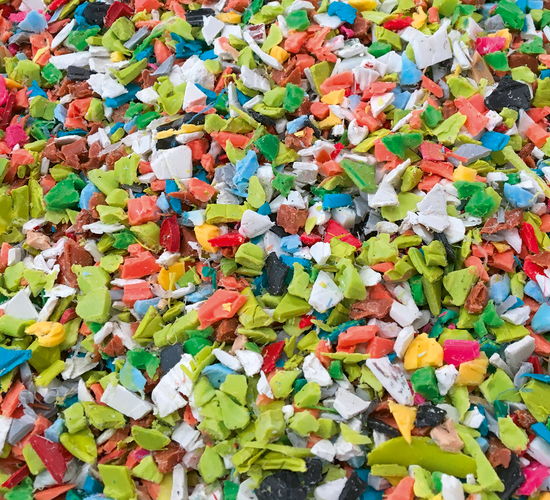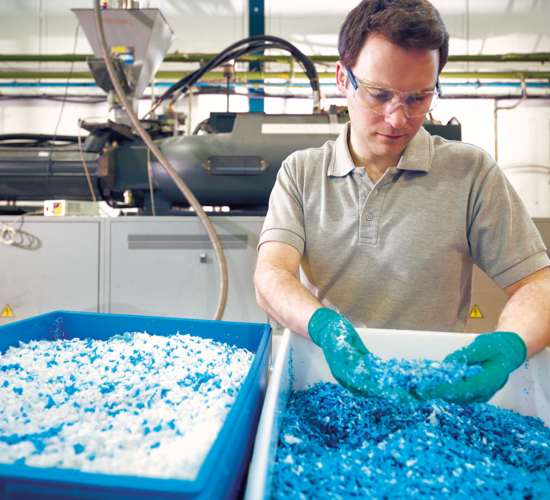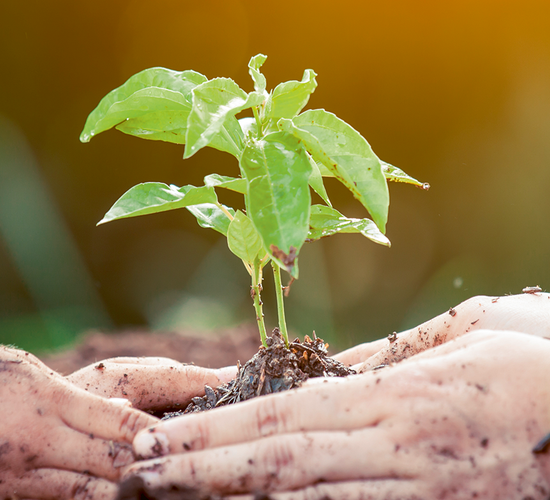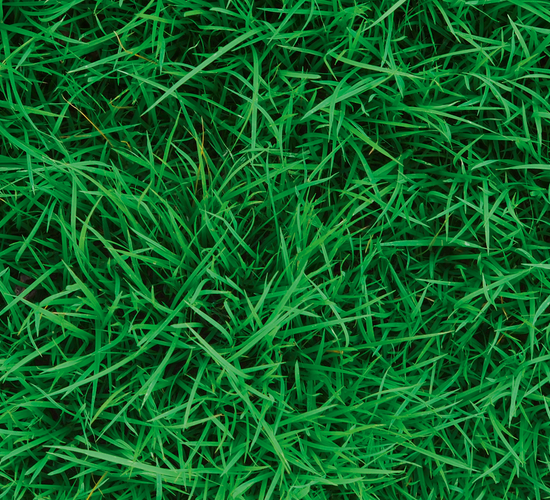The material
Post-consumer recyclate (PCR for short) is a recycled material mixture of household, commercial and agricultural waste. The increasing use of PCR films closes the recycling loop and conserves resources. The challenge here is to produce consistently tear-resistant end products despite the heterogeneous quality of the starting material.



